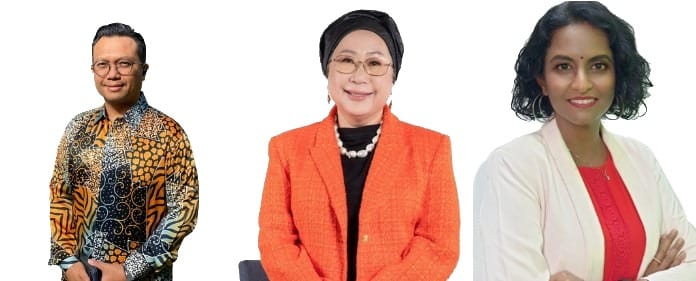
THE popular question right now as we are in the endemic phase is “when will it all return to the normal lifestyle which we were familiar with?”
To answer this question, Tan Sri Dr Jemilah Mahmood, Executive Director of Planetary Health, University Sunway at a recent webinar retorted: “Was our pre-pandemic so-called normal lifestyle, the ideal way to support planetary health? Do we want to lead the same pre-pandemic lifestyle again?”
Excitement is building up as we see the world returning to normalcy with the endemic phase kicking in, but we are also at a crucial point to reflect on how the world was actually performing before Covid-19. The pandemic unveiled many gaps in our healthcare system, managing the environment, fragmented policies, and science literacy among the public among others.
This pandemic is also one of the repercussions of neglecting planetary health. Before Covid-19, the Gross Domestic Product (GDP) was the barometer of success, but we fail to realise that the growth then has impacted animal habitats, ecosystem, and the extreme melting in the Arctic releasing thousands of bacteria and viruses that have been impacting the planet health.
“We overlooked the bigger picture, the distance between human and animals is becoming nearer which leading to zoonotic diseases.”
These thoughts were raised by Jemilah at the recent Realiti Dunia Pasca Covid-19 Webinar hosted by the Malaysian Biotechnology Information Centre (MABIC) and Science Media Centre Malaysia (SMC). The webinar was supported by Duopharma Biotech Berhad.
Jemilah further said: “WHO is predicting Disease X which could be deadlier than Covid-19.”
“Eventually, Covid-19 is not the end but a great teacher that educated us for a better level of preparedness by showing planetary health and public health are intertwined.”
On public preparedness, Associate Professor Dr Mohd Dzulkhairi, Medical Associate Professor and Public Health Physician, University Science Islam Malaysia (USIM) said the level of knowledge among the public on vaccines and Covid-19 was only 30% and this rose to 60% as the National Immunisation Programme picked up.
“It shows that providing the right knowledge has helped the public to make science-based decisions on vaccination,” said Dzulkhairi who had conducted a series of surveys on public understanding of Covid-19 vaccines and the disease.
Jemilah also pointed out that Covid-19 could have been handled differently at the onset if there was more investment in public health as experts had always predicted an impending pandemic.
“Health experts saw it coming and the next pandemic is not about ‘if’ but ‘when’,” said Jemilah.
“It was a late lesson for an early warning,” she said.
The WHO announced the pandemic in early 2020 calling on countries to take immediate action but most countries took a “wait and see” approach as there was no legislative framework in most countries to manage a pandemic.
Misinformation was another huge challenge. “During the early stage of vaccination many people rejected vaccines not because they are anti-vaxxers, but they were just ill-informed on the side effects and influences of such vaccines made worse by misinformation on social media,” said Dzulkhairi.
Jemilah also addressed the responsibility of medical practitioners to de-jargonise science and explain it to the public in layperson’s language.
“I really hope science communication does not end after the pandemic but continues for preparedness to face another future health crisis,” urged Datin Dr Mahaletchumy Arujanan, Chief Editor of The Petri Dish and moderator of the webinar.
She said in the new normal, the planetary health expert also emphasised the need to invest in digitalisation of data. Data sharing must include all rural areas as cases in these areas are underreported and overlooked in many countries.
While both speakers lauded Malaysia’s high vaccination rate compared to other countries where almost 99% of our adults have completed two doses, social media remained a double edge sword.
“There are still many who are rejecting the booster dose due to lack of trust that calls for continued awareness programmes,” said Dzulkhairi.
Jemilah also added that one of the factors for vaccine hesitancy in Malaysia is because Malaysians are new to adult mass vaccination, unlike the annual flu shot in Europe.
When asked what would have been the scenario if vaccines were not developed on time, Jemilah had this to say, “death rates would have tripled, the economic and mental health would have been worsened.”
She also said Covid-19 vaccine development has laid a new path for capacity building, data sharing, and collective action across countries. Moving forward, Jemilah explained a few best practices for Malaysia in returning to normalcy.
“It is time for a health transformation as health systems need to be more integrated. Investing in an electronic medical record that keeps the entire medical history of a patient, mass screening must continue to monitor new mutations and early detections.
“Finally, accountability, solidarity, transparency, and equity are four principles that need to be upheld for preparedness in public health”.
Dzulkhairi emphasised the role of the public in ending this pandemic.
“Many think that relaxation of SOPs is risky but it is actually a sign of progress.”
Dzulkhairi affirmed that the trending hashtag “kitajagakita” should be followed religiously at this endemic to protect ourselves”.
Basically, both panelists agreed that we need to move on to a new normal that is better than what was pre-pandemic.
















